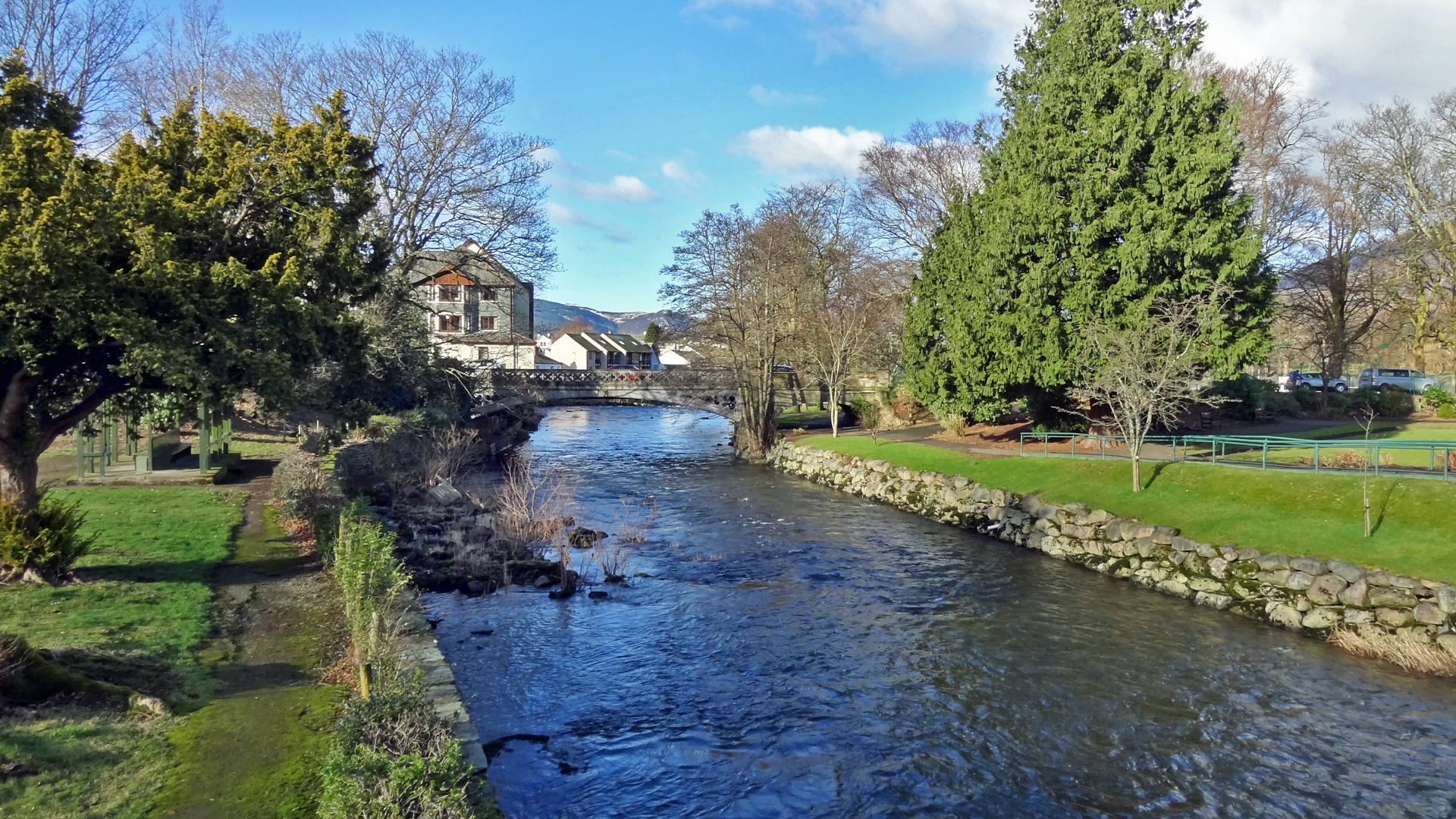River Greta, Cumbria on:
[Wikipedia]
[Google]
[Amazon]
The River Greta is a river in  The source of the river is near Threlkeld, at the confluence of the River Glenderamackin and St. John's Beck. From there, the river runs westward, roughly aligned with the former
The source of the river is near Threlkeld, at the confluence of the River Glenderamackin and St. John's Beck. From there, the river runs westward, roughly aligned with the former
Cumbria
Cumbria ( ) is a ceremonial county in North West England. It borders the Scottish council areas of Dumfries and Galloway and Scottish Borders to the north, Northumberland and County Durham to the east, North Yorkshire to the south-east, Lancash ...
, England. It is a tributary
A tributary, or an ''affluent'', is a stream or river that flows into a larger stream (''main stem'' or ''"parent"''), river, or a lake. A tributary does not flow directly into a sea or ocean. Tributaries, and the main stem river into which they ...
of the River Derwent and flows through the town of Keswick. "Greta" derives from the Old Norse "Griótá", meaning "stony stream".Ekwall, p. 205 The name is in records dating from the early 13th century, and also appears in Latinised form, as "Gretagila", at the time of Magna Carta
(Medieval Latin for "Great Charter"), sometimes spelled Magna Charta, is a royal charter of rights agreed to by King John of England at Runnymede, near Windsor, on 15 June 1215. First drafted by the Archbishop of Canterbury, Cardin ...
.
Cockermouth, Keswick and Penrith Railway
The Cockermouth, Keswick and Penrith Railway (CK&PR) was an English railway company incorporated by act of Parliament (UK), act of Parliament on 1 August 1861, to build a line connecting the town of Cockermouth with the London and North Western ...
between Keswick and Penrith. The river subsequently flows through Keswick before joining the Derwent just after the latter flows out of Derwentwater
Derwentwater, or Derwent Water, is a lake in the Lake District in North West England, immediately south of Keswick, Cumbria, Keswick. It is in the unitary authority of Cumberland (unitary authority), Cumberland within the ceremonial county of ...
.Jenkinson, pp. 131, 183 and 189 The medieval bridge over the river in Keswick was unusual in having two arches; on the great coach road from Kendal
Kendal, once Kirkby in Kendal or Kirkby Kendal, is a market town and civil parish in the unitary authority of Westmorland and Furness, England. It lies within the River Kent's dale, from which its name is derived, just outside the boundary of t ...
to Cockermouth
Cockermouth is a market town and civil parish in the Cumberland unitary authority area of Cumbria, England. The name refers to the town's position by the confluence of the River Cocker into the River Derwent. At the 2021 census, the built u ...
all but two of the other bridges ( Troutbeck and Portinscale) crossed their rivers in a single span. The current Greta Bridge in Keswick is another two-arch structure, built in 1926.Thompson, pp. 347–348
The major tributaries of the Greta are Naddle Beck and Glenderaterra Beck.
Literary associations
*Wordsworth
William Wordsworth (7 April 177023 April 1850) was an English Romantic poet who, with Samuel Taylor Coleridge, helped to launch the Romantic Age in English literature with their joint publication '' Lyrical Ballads'' (1798).
Wordsworth's ...
’s sonnet ‘To the River Greta, near Keswick’, was written in 1823.G Lindop, ''A Literary Guide to the Lake District'' (London 1993) p. 176
* Coleridge, referring to the sound of the boulders in the (19th C) stream, claimed that its name “literally rendered in modern English is ‘The Loud Lamenter’ - to Griet in the Cumbrian Dialect signifying to roar aloud for grief or pain –: and it does ‘’roar’’ with a vengeance!”.
See also
* Castlerigg Stone CircleNotes
References
* * * Greta 1Greta {{England-river-stub